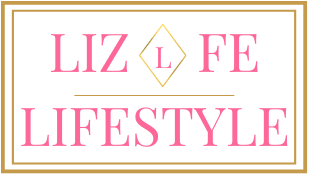Zitkala Sa is one American hero who deserves to be recognized.
Every now and then, we have to look back across history to see how we as a country or even a world have come. When we do look back, we often remember wars, tragedies, and people. Though wars and other tragedies are unfortunate, people and their achievements usually take up most of our memory of the past. Presidents and other male figures are who we learn about in school. Rarely, do we remember the women who have taken part in getting our country to where it needs to be. Women are the backbone of our nations. Through wars and movements, women are almost always there to lead right-beside other women or men. Zitkala-Ša, though she is no longer with us today, is one woman who deserves to be remembered in the history of the United States.
Following her 145th birthday, we should review her contributions to the United States and the greater world. She made changes within the lives of her students, her people, women, her country, art, and other areas of life. Not too unlike Stacy Abrams who is currently a nominee for the Nobel Peace Prize for her grass-roots work.
Who is Zitkala-Ša? What did she do for her people? What did she do for the United States? How should we remember her? Well, all those questions and more can be answered down below.
Who Is Zitkala-Sa?
Zitkala-Ša is a Native American writer, musician, teacher, composer, and suffragist. While she achieved most of these titles during her lifetime within the late 19th and early 20th century, she is still recognized as some of them today by other musicians and women’s rights activists.
She lived resiliently in her time. In the 19th and 20th centuries, it was not easy for Indigenous people in the United States to be recognized at all. Many weren’t even recognized as citizens. Nonetheless, Zitkala-Ša spent her life fighting for and celebrating her people and other indigenous people through her art and activism.
Her Early Life
Zitkala-Sa was born on February 22nd of 1876 as a member of the Yankton Sioux Tribe of South Dakota also known as Ihanktonwan Dakota Oyate or “People of the End Village”. She spent her first several years of life on a reservation like many Native Americans of her time. Growing up, Zitkala-Sa went by two names. Today we know her as Zitkala-Ša, which translates to Lakota/Lakȟótiyapi for “Red Bird”. She also went by the name of Gertrude Simmons. Obviously, this name is more European and probably one she did not prefer to use.
Zitkala-Sa did not spend much time growing up on the reservation because, by the age of eight years old, she was shipped away to the White’s Indiana Manual Labor Institute. This was a missionary boarding school where she faced many problems. She was forced to cut her hair against her will, she was forced to speak English instead of her native Lakota/Lakȟótiyapi language, and she was forced to practice Christianity.
Native American Boarding Schools
Zitkala-Ša along with many thousands of other Native American children had no other choice but to attend these boarding schools between the 19th and 20th centuries.
During this time, the country was working to assimilate many Native Americans into the country as a way to “kill the Indian but save the man” as the late Richard Henry Pratt who served as an Army officer and boarding school director once said.
The reason why these boarding schools were able to maintain their standing in the United States is because of the Civilization Fund Act of 1819. It provided funding for all missionaries and religious groups to create a system that would forcibly assimilate Native American children into white American culture.
While she did discover her love for the violin at the school, Zitkala-Sa disapproved of the institutional efforts to assimilate her and others. She would later go on to protest assimilation through a lifetime of writing and political activism.
Zitkala-Sa’s Career
After her time at boarding school. Zitkala-Ša returned back home to her reservation. There, she would write an anthology of oral Dakota stories published as “Old Indian Legends” in 1901. Her work was groundbreaking at the time because it was among the first to provide Indigenous stories to the public.
When she wasn’t writing, her abilities as a musician also had an effect on uplifting other Indigenous people like her and other groups of people in the United States. In 1913, she went on to write songs.
Zitkala-Sa wrote for the first Indigenous American Opera, The Sun Dance, which is based on sacred ceremonies of the Sioux.
Her Activism Work
Not only did Zitkala-Sa inspire people through her beautiful writing and music, but she also was a spokesperson for Indigenous people and women of the United States. As a life-long activist, Zitkala-Sa touched the lives of every Indigenous person and woman around her. One way she did this was by co-founding the first president of the National Council of American Indians. Zitkala-Sa’s time as president was influential in the passage of historic legislation, like the Indian Citizenship Act of 1924. This granted citizenship to Indigenous peoples born in the United States. She was also influential in the passage of the Indian Reorganization Act of 1934.
We Thank Her!
So, every year when you look back on all of the influential heroes of the world, don’t forget to add Zitkala-Sa to the list. She was an activist, writer, musician, composer, and teacher that was influential to everyone around her during her time.
There are little to no people today who can compare to her and what she has done. Yet, it is clear that there will be no one else like her. So, what we can do now is follow her examples and teach others about her work to inspire them to lead as she did. This can be by sharing her work on social media or by sitting down to have a good conversation about her influence on the world. Either way, we definitely advise that you share the knowledge of her actions and learn more about them. She’s an amazing woman, so why not? Her efforts to progress the lives of her people and women have not gone unrecognized to us here at LizFe Lifestyle and they shouldn’t for you either.
Want to learn about other influential women in the world?




